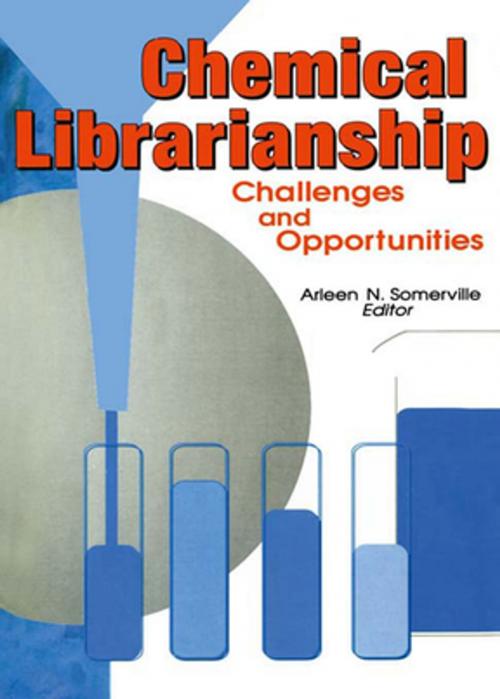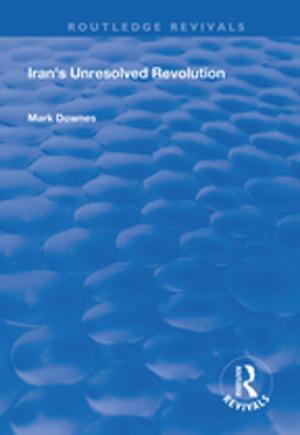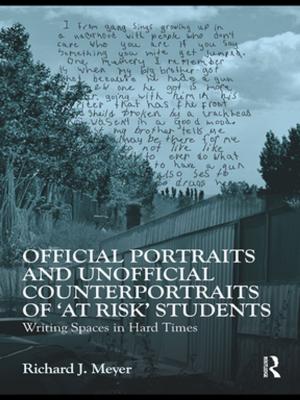Chemical Librarianship
Challenges and Opportunities
Nonfiction, Reference & Language, Language Arts, Library & Information Services| Author: | Arleen N Somerville | ISBN: | 9781317951506 |
| Publisher: | Taylor and Francis | Publication: | October 18, 2013 |
| Imprint: | Routledge | Language: | English |
| Author: | Arleen N Somerville |
| ISBN: | 9781317951506 |
| Publisher: | Taylor and Francis |
| Publication: | October 18, 2013 |
| Imprint: | Routledge |
| Language: | English |
As early as the 18th century, chemists’emphasis on up-to-date literature presented research librarians with many challenges. But now, Chemical Librarianship: Challenges and Opportunities will show you how you can adapt your methods to the rapidly evolving demands of twentieth-century chemical researchers without sacrificing your high standards of service. Altogether, this comprehensive overview helps you see the major role librarians still play in information education and gives you a broad assortment of strategies for coping with the accelerated demands of today's shifting electronic research environment.
In Chemical Librarianship, you'll read about the revolutionary pedagogical experiments of librarians, teachers, computer specialists, and graduate students. You'll see how those experiments have altered the way they approach research--for the better--and how you can make positive adjustments in your own successful formulae. Individual chapters discuss:
-
librarians as teachers
-
the pros and cons of integrating/separating chemical information courses
-
faculty and computing staff--partnership at the University of Florida
-
Yale University's experiment with The Electronic Seminar System
-
the evolution of electronic journals
-
the most recent trends in academic serial collection
Take 100 mg of quickly changing research technology, a drop of increased enrollment, and 250 cc's of faculty requests, shake it up in an Erlenmeyer flask, heat it at 200 degrees Celsius, and what do you get? An explosion? A disaster? If these are your fears, put them away. Open up Chemical Librarianship and let some of the most informed experts on research and technology help you and your staff find just the right chemistry.
As early as the 18th century, chemists’emphasis on up-to-date literature presented research librarians with many challenges. But now, Chemical Librarianship: Challenges and Opportunities will show you how you can adapt your methods to the rapidly evolving demands of twentieth-century chemical researchers without sacrificing your high standards of service. Altogether, this comprehensive overview helps you see the major role librarians still play in information education and gives you a broad assortment of strategies for coping with the accelerated demands of today's shifting electronic research environment.
In Chemical Librarianship, you'll read about the revolutionary pedagogical experiments of librarians, teachers, computer specialists, and graduate students. You'll see how those experiments have altered the way they approach research--for the better--and how you can make positive adjustments in your own successful formulae. Individual chapters discuss:
-
librarians as teachers
-
the pros and cons of integrating/separating chemical information courses
-
faculty and computing staff--partnership at the University of Florida
-
Yale University's experiment with The Electronic Seminar System
-
the evolution of electronic journals
-
the most recent trends in academic serial collection
Take 100 mg of quickly changing research technology, a drop of increased enrollment, and 250 cc's of faculty requests, shake it up in an Erlenmeyer flask, heat it at 200 degrees Celsius, and what do you get? An explosion? A disaster? If these are your fears, put them away. Open up Chemical Librarianship and let some of the most informed experts on research and technology help you and your staff find just the right chemistry.















